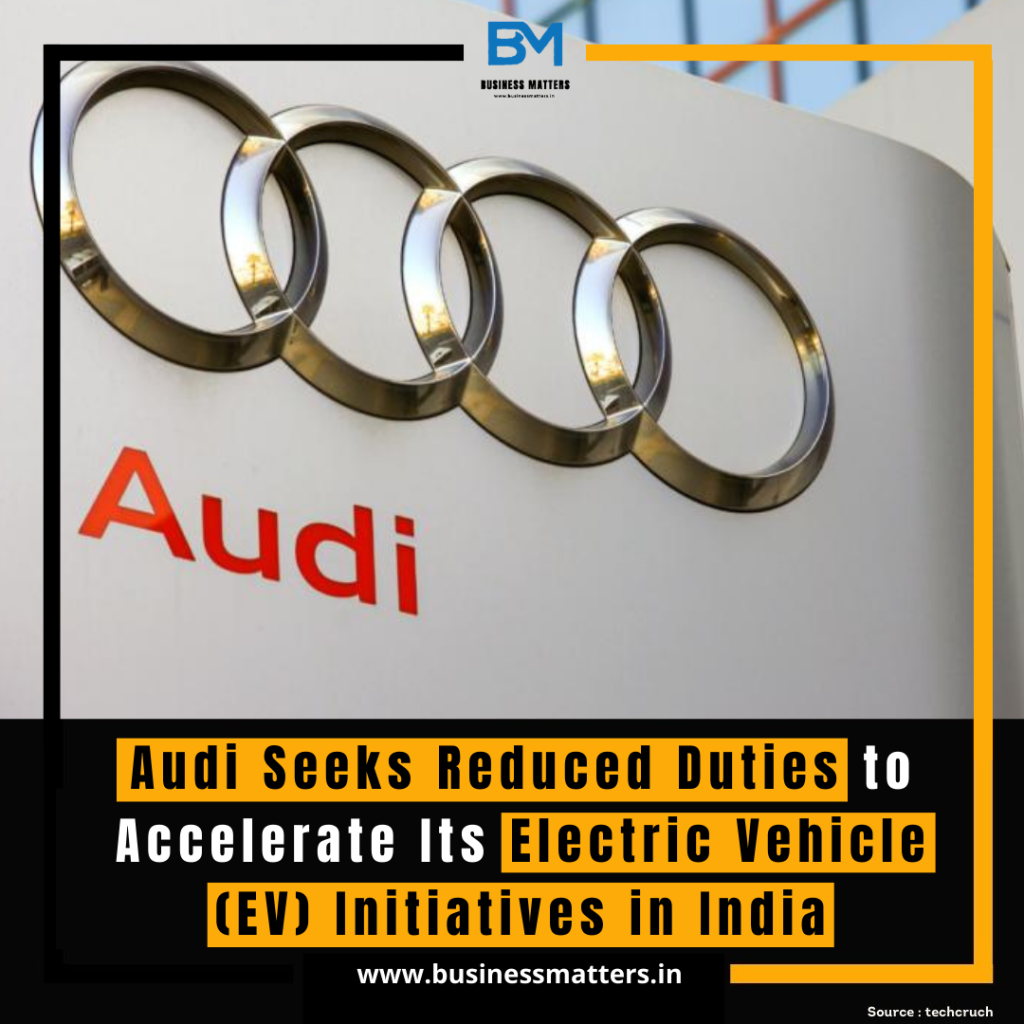
German automaker Audi has set its sights on accelerating its electric vehicle (EV) initiatives in the Indian market. To facilitate this ambition, the company is actively lobbying for a reduction in import duties, which currently pose a significant challenge to the growth of the EV sector in the country.
Audi’s Commitment to Electric Mobility
Audi has been a key player in the global automotive industry, known for its luxurious and technologically advanced vehicles. In recent years, the company has made a strategic shift towards electric mobility, reflecting the broader trend in the automotive industry towards sustainable and eco-friendly transportation solutions.
The Indian EV Landscape
India, like many other countries, is actively promoting the adoption of electric vehicles to combat pollution, reduce carbon emissions, and achieve energy efficiency. Government incentives and policies have been introduced to encourage the production and adoption of EVs. However, the Indian EV market still faces several challenges, including high upfront costs, limited charging infrastructure, and import duties.
Import Duties: A Hurdle to EV Adoption
Import duties, particularly on completely built units (CBUs), have been a significant impediment to the growth of the EV sector in India. These duties can significantly increase the cost of EVs, making them less affordable for consumers. As a result, many automakers have struggled to make EVs price-competitive in the Indian market.
Audi’s Push for Reduced Duties
Audi is actively lobbying for a reduction in import duties on EVs to overcome this obstacle. The company believes that lower duties would make their electric vehicles more accessible to Indian consumers and stimulate demand in a price-sensitive market.
This push aligns with the broader objectives of the Indian government to promote EV adoption and reduce the country’s carbon footprint. Reducing import duties on EVs would not only encourage automakers like Audi to bring their electric offerings to India but also incentivize local manufacturing and assembly of EV components.
Local Assembly and Production
To further boost its EV presence in India, Audi has explored the possibility of local assembly and production of EVs. Local manufacturing can help circumvent high import duties and create jobs, contributing to the “Make in India” initiative. This approach would not only make Audi’s EVs more affordable but also stimulate the growth of the EV ecosystem, including charging infrastructure and maintenance services.
Competitive Landscape and Consumer Choice
Audi faces competition in the Indian EV market from both domestic and international automakers. Brands like Tesla, Mahindra Electric, and Tata Motors are actively participating in the EV space, offering a range of electric vehicles. Lower import duties could make Audi’s EVs more competitive and attractive to discerning Indian consumers who seek luxury and performance in electric mobility.
The Road Ahead
As Audi pushes for reduced import duties, it underscores the company’s commitment to promoting sustainable and eco-friendly transportation solutions in India. The success of this endeavor could have a ripple effect on the entire Indian EV ecosystem, encouraging other automakers to follow suit and contributing to the government’s vision of a cleaner and greener transportation future.
The Indian automotive landscape is evolving, and electric mobility is poised to play a pivotal role in shaping its future. Audi’s efforts to navigate the challenges posed by import duties reflect its determination to be a significant player in India’s electric vehicle revolution. As the industry and regulatory environment continue to evolve, the coming years hold the promise of increased accessibility and affordability of electric vehicles, making them a viable choice for a broader segment of Indian consumers.

